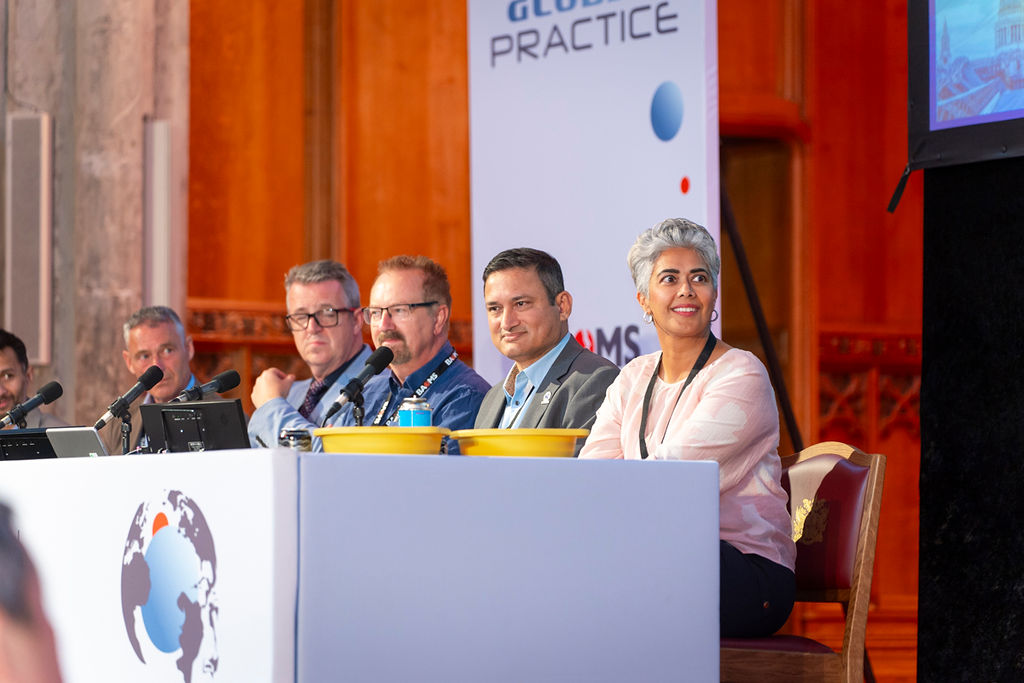Celebrating the humanitarian work of OMS surgeons
30 June 2025 (Last updated: 30 Jun 2025 09:33)

This year’s BAOMS Annual Scientific Meeting featured a Humanitarian Symposium, marking the first time this topic has featured on the programme. The session showcased some of the selfless work done by oral and maxillofacial surgeons in their own time and enthused delegates to find out more about how they can get involved in this kind of voluntary work.
Mr Leo Cheng, Consultant Oral, Maxillofacial and Head & Neck surgery at St. Bartholomew's the Royal London and Homerton University Hospitals, and Mr Sunil Sah, Consultant Oral & Maxillofacial Surgeon at Mid Yorkshire Hospital NHS Trust co-chaired the symposium. The series of talks demonstrated the range of charities and geographic spread of humanitarian work that is happening, often without fanfare.
Mr Cheng is a trustee of the international health charity, Mercy Ships. Their hospital ships bring free surgeries to those who would not otherwise have access in sub-Saharan Africa, and train healthcare professionals to deliver care to those in need.
He says: “Our intention was to ask the panel questions about what moved their heart to motivate their humanitarian work in the first place and what motivates them to keep going back? I was looking forward to a heart to heart chat that would also influence delegates who may be thinking of doing charity surgery. At the reception in the evening several attendees came to ask for more information, so I think we successfully spread the word about the opportunities that are available.”
Panellist Ms Manjit Dillon, Consultant Oral and Maxillofacial Surgeon at Aberdeen Royal Infirmary, spoke during the symposium. She has travelled on several Mercy Ships voyages to Sierra Leone and Madagascar, treating patients with advanced pathologies who have no access to healthcare in their own region.
She says: “Two thirds of the global population lacks access to safe, affordable or timely surgery, which means that 17 million people die each year of surgically treatable disease. We know that the work we do isn't going to change the world, but it does change the world for the individual we're treating. In fact, you change the entire trajectory of their life with skill sets that we take for granted here, and that's why I keep going back.”
The Norman Rowe International Educational Foundation is a sub-committee of BAOMS that promotes a humanitarian mandate to support the needs of post-conflict countries in the global south. Mr Sunil Sah is current chair of the committee, and has been funded by the foundation in the past. He says it changed his life so he is proud to be in a position to give something back.
Mr Sah has worked outside of the UK, not least in Nepal where he has his own charity, Craniofacial Center Nepal, that performs hundreds of cleft operations each year. His website has attracted surgeons from around the world, who give their time to help patients in that underserved country.
He says: “When you work in different countries, you work in ways you wouldn’t in the UK and you learn from others in that part of the world. This extends your skills and helps you to become a better surgeon. In turn, you know you can provide better care for your patients.”
He is keen to attract the UK’s talented pool of maxillofacial surgeons to support the Norman Rowe International Educational Foundation, with its mandate for international medical education and training. The work is part of BAOMS’ broader educational mission and this year’s Norman Rowe lecture at the end of the BAOMS Annual Meeting will be given by Mr Gary Parker, Chief Medical Officer Emeritus and OMF Surgeon on the Mercy Ships. His lecture is entitled: Rebuilding Faces, Restoring Lives: The Impact of OMFS in Global Surgery.
View Other News